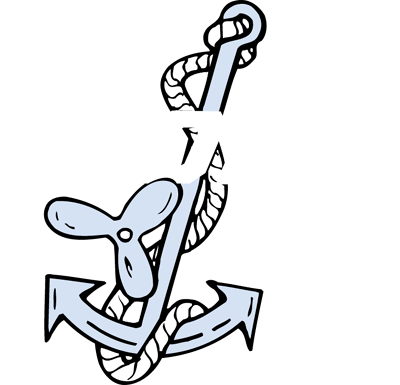It was a warm early summer morning and the water and waterfront were crowded with commercial and private vessels of every description. From a slowly moving tug/barge combination and a working dredge, to numerous water taxis and larger catamaran ferries, the harbor was buzzing with activity. All of these commercial vessels were operating in close quarters with a fleet of small yachts, sailboats and, even a few very brave kayakers paddling around the congested waterway.
In this frenetic mix of activity, one of the larger front-loading catamaran ferries was close to completing its scheduled 25-minute run across the harbor and was approaching the dock to offload its 95 passengers and pick up a similar number for a return trip. The cat’s approach to the dock was proceeding normally and, when appropriate, the captain engaged the engine controls to effect neutral and then reverse to prepare for docking. Surprisingly, the engines did not immediately respond to his input causing the vessel to violently allide bow-first with the dock.
Many passengers had already left their seats and lined up to disembark when the abrupt impact threw many of them against bulkheads and down the stairs on top of one another from the top deck. The terrifying scene was filled with dozens of obvious injuries, such as bone fractures and lacerations, and an unknown number of less obvious injuries, such as herniations, muscle tears and possible closed head injuries like concussions.
The emergency response by police, fire and EMS was both swift and massive, with full media coverage, both professional and social, of the event being broadcast “live” seemingly from the moment of impact.
An Impulsive Decision
In this chaotic and highly-charged atmosphere, the chief operating officer of the ferry company was unexpectedly interviewed and, after apologizing profusely for the “actions of his captain,” announced that he was immediately terminating the employment of that same veteran ferry captain. Obviously, this decision was made prior to the commencement of any investigation into the actual cause of the allision, and strongly implied that it was due to the negligent acts of the company’s long-term employee. The snap judgment to fire the captain was picked up and immediately broadcast by the local media…an action many thought as judging his employee “guilty until proven innocent.”
Prior to being unexpectedly terminated, the captain had contacted his license insurer to report the incident, and the local maritime attorney assigned to represent him immediately went to the scene to prepare the bridge officer for his first round of interviews with the local investigators from the Coast Guard.
It soon became apparent to the maritime attorney and lingering first responders that the more likely cause of the ferry’s allision with the dock was some type of mechanical failure…and not the negligent actions or decision-making of the now dismissed ferry’s captain. Eyewitnesses on both the ferry and the dock were adamant in claiming that, from their perspectives, the vessel’s engines did not promptly respond to the captain’s pre-docking commands until it was too late to avoid striking the dock.
The Focus of the Investigation Shifts
A few weeks later, the now unemployed bridge officer, accompanied by his attorney, met with the Coast Guard for an expansive casualty investigation interview. By then, he had submitted his 2692 Marine Casualty Report, and had been thoroughly prepared by his attorney on what to expect and how best to respond to the questions of the two Coast Guard accident investigators. The interview went well for the captain, who handled himself professionally and honestly, and it became increasingly clear that the investigators’ focus had shifted from the captain’s performance to the working condition of the vessel’s electronic computer controls that fateful morning.
This was a major shift in the case because, in large part due to the company manager’s statements made to the press at the time of the accident, the ferry operator was facing over two dozen lawsuits demanding several million dollars in total to compensate the most seriously injured passengers involved in the incident. And, because the Coast Guard was very unlikely to file negligence charges and commence Suspension & Revocation (S&R) proceedings against the captain’s license, his former company and the mechanical condition of its vessel were now in the crosshairs of the plaintiff attorneys representing the injured passengers.
While terminating the captain immediately following the casualty can be debated as to its timing and appropriateness, the “blame” that it inferred on him and the damage it caused to his professional reputation turned out to be disproved by the subsequent investigation. In fact, the cause of the allision was ultimately determined to be “the result of mechanical failure.”
Rash Decisions Can Have Lasting Consequences
What’s the lesson?
Certain sectors of the commercial maritime community continue to grow in both size and number of vessels, and more and more operators in the passenger vessel business are providing license insurance coverage to their officers as a benefit to help recruit and retain these valuable employees. As always, it is important to show patience and restraint before making any post-accident judgments about the incident until after the emotional, media-driven atmosphere subsides and professional investigators can determine the scientifically-valid cause of the casualty. Prematurely (and mistakenly) assigning blame could easily turn out to be a lose/lose outcome…for both to the company and the involved officer.
Since 1935, MOPS has protected the licenses and livelihoods of more than 80,000 deck and engineering officers, state and federal pilots and certified tankermen.
We cover USCG licensed officers operating aboard vessels of any size in every sector of the maritime industry. If you want a quote, give us a ring at 800-782-8902, ext. 3608 or 3302. Or fill out our online form and we'll email you a quote.

